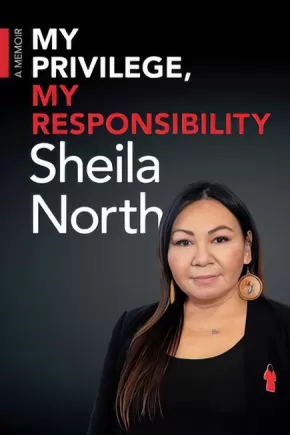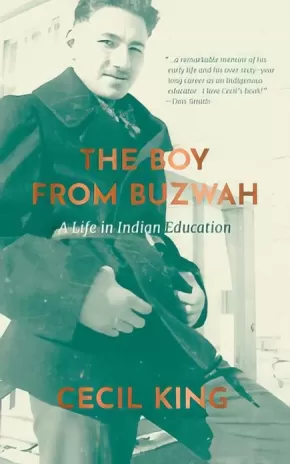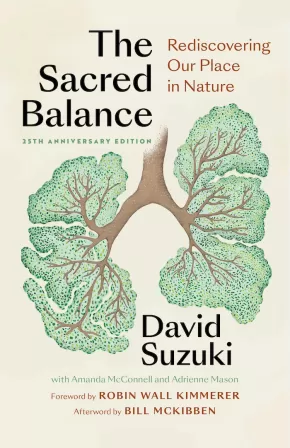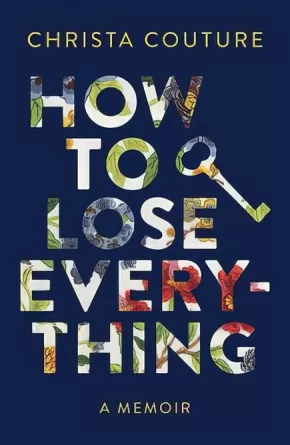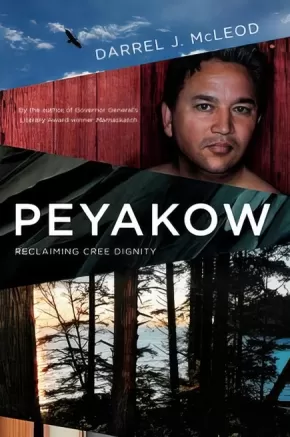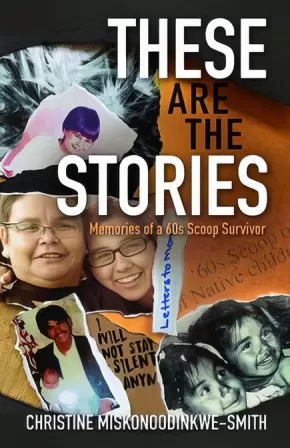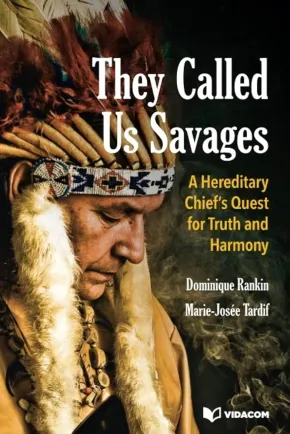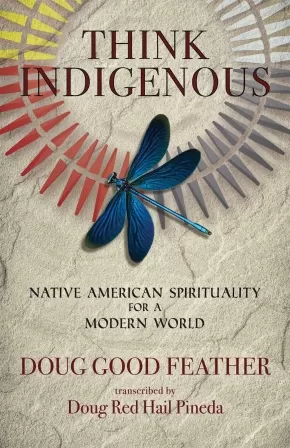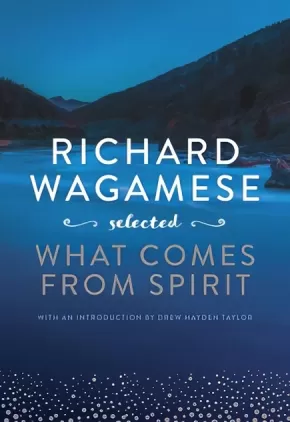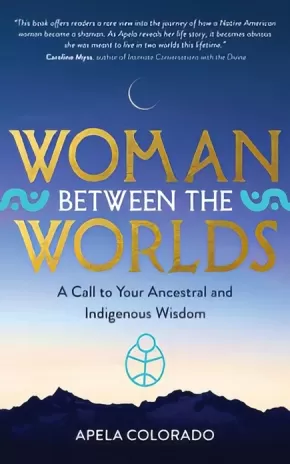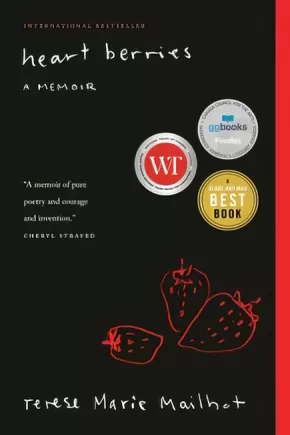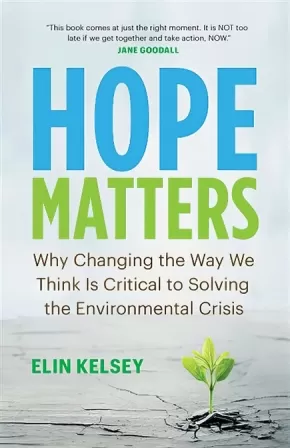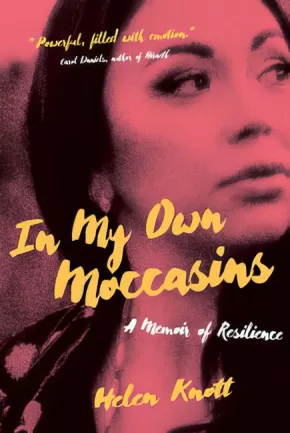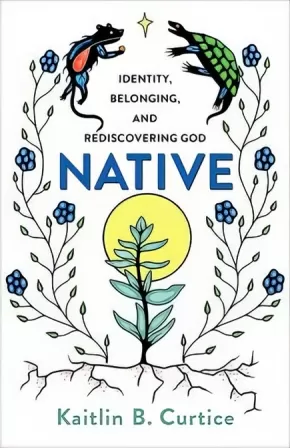Stories of Inspiration
Synopsis:
In September 2015, Sheila North was declared the Grand Chief of Manitoba Keewatinowi Okimakanak (MKO), the first woman elected to the position. Known as a “bridge builder”, North is a member of Bunibonibee Cree Nation. North’s work in advocacy journalism, communications, and economic development harnessed her passion for drawing focus to systemic racism faced by Indigenous women and girls. She is the creator of the widely used hashtag #MMIW. In her memoir, Sheila North shares the stories of the events that shaped her, and the violence that nearly stood in the way of her achieving her dreams. Through perseverance and resilience, she not only survived, she flourished.
Additional Information
232 pages | 6.00" x 9.00" | Paperback
Synopsis:
We all share a common humanity. No matter how long or difficult the path ahead, we are all one.
Reconciliation belongs to everyone. In this profound book, Chief Robert Joseph, globally recognized peacebuilder and Hereditary Chief of the Gwawaenuk People, traces his journey from his childhood surviving residential school to his present-day role as a leader who inspires individual hope, collective change, and global transformation.
Before we get to know where we are going, we need to know where we came from. Reconciliation represents a long way forward, but it is a pathway toward our higher humanity, our highest selves, and an understanding that everybody matters. In Namwayut, Chief Joseph teaches us to transform our relationships with ourselves and each other. As we learn about, honour, and respect the truth of the stories we tell, we can also discover how to dismantle the walls of discrimination, hatred, and racism in our society.
Chief Joseph is known as one of the leading voices on peacebuilding in our time, and his dedication to reconciliation has been recognized with multiple honorary degrees and awards. As one of the remaining first-language speakers of Kwak'wala, his wisdom is grounded in Indigenous ways of knowing while making space for something bigger and better for all of us.
Additional Information
200 pages | 5.25" x 8.00" | Hardcover
Synopsis:
Cecil King’s remarkable memoir, from humble beginnings on a reservation to his unparalleled legacy to ensure Indian Control of Indian Education in Canada.
“Through my eyes, my community was creative, innovative and self-sufficient. In this remote northern traditional First Nation society, the skills, knowledge and abilities that the community needed to survive were all there. . . . The stories are not just of survival and hardship but of the power of the human spirit and the sheer natural genius of individuals.” — Cecil King
Cecil King grew up in the small settlement of Buzwah, Ontario, situated on Wikwemikong Unceded Indian Reserve on Manitoulin Island. This moving memoir shares King’s life on reserve in the 1930s and ’40s and describes a vibrant community full of interesting characters who shared knowledge, warmth, affection, and humour. King also describes his experiences attending Buzwah Indian Day School and St. Charles Garnier Residential School.
After furthering his education, King returned home to Buzwah as a teacher. He quickly became disillusioned with the Ontario curriculum and how inadequately it resonated with on-reserve youth and the realities of Indigenous life. It was then that King began his unparalleled legacy to ensure Indian Control of Indian Education in Canada.
King helped create curriculum that connected to traditional Indigenous cultures and established First Nation language courses in elementary and secondary schools. Over the course of his fifty-year career in education, he would found the Indian Teacher Education Program at the University of Saskatchewan, become the first director of the Aboriginal Teacher Education Program at Queen’s University, and develop Ojibwe language courses across North America.
A remarkable story about a remarkable man, The Boy from Buzwah is a powerful testament to Dr. Cecil King’s work and legacy.
Reviews
“A poignant reflective must-read memoir of an Indigenous educator whose life lived was Indigenizing and decolonizing western academies.” —Marie Battiste, author of Decolonizing Education and Honorary Officer of the Order of Canada
“Miigwetch Cecil King, for sharing your remarkable journey and life in this essential book, which educators and learners will treasure. This is a book of extraordinary generosity and humility, and one that provides both context and direction for the future of Indigenous education.” —Jesse Wente, author of Unreconciled
“An essential account of an Indigenous scholar’s trailblazing and sweeping contributions towards restoring and inspiring indigenous control of indigenous education.” —Verna St. Denis, University of Saskatchewan
“Cecil King’s memoir is an important contribution to the Indigenous literature, documenting early life on the Wikwemikong Unceded Indian Reserve, disclosing the enduring roots of Odawa tradition, chronicling the re-emergence of Anishnawbe culture and the rise of Indigenous activism, particularly in the important area of Indigenous education.” —Hon. Leonard S. Tony Mandamin IPC, Justice in Residence, Faculty of Law/Faculty of Native Studies, University of Alberta
“Cecil King has written a remarkable memoir of his early life and his over sixty-year-long career as an Indigenous educator. The teacher, respected community leader, and post-secondary professor and administrator, argues most convincingly for a system of First Nations education that incorporates fully Indigenous history, culture, and present-day realities. I love Cecil’s book!” —Don Smith, Professor Emeritus of History, University of Calgary
"Cecil King's book about his experiences in a day school, residential school, the bureaucracy and institutional development on Indigenous education presents an important perspective in the debate on educational change in the past half-century. His personal perspective and his use of Ojibwe as part of this history introduces a new qualitative dimension to this debate." —Keith Goulet, former Minister of Northern Affairs for Saskatchewan
Educator Information
King was one of the first to create curricula designed for Indigenous children and education programs to train Indigenous teachers and to establish some of the first Indigenous language courses in North America.
King understood that strengthening students’ cultural identity was key to their academic success and saw how the Canadian curriculum was not designed to do this.
Additional Information
356 pages | 5.00" x 8.50" | Paperback
Synopsis:
“The Sacred Balance has a beautiful spirit.”—E.O. Wilson
With a new foreword from Robin Wall Kimmerer, New York Times-bestselling author of Braiding Sweetgrass—and an afterword from Bill McKibben—this special 25thanniversary edition of a beloved bestseller invites readers to see ourselves as part of nature, not separate.
The world is changing at a relentless pace. How can we slow down and act from a place of respect for all living things? The Sacred Balance shows us how.
In this extensively updated new edition, David Suzuki reflects on the increasingly radical changes in science and nature—from the climate crisis to peak oil and the rise in clean energy—and examines what they mean for humankind. He also reflects on what we have learned by listening to Indigenous leaders, whose knowledge of the natural world is profound, and whose peoples are on the frontlines of protecting land and water around the world.
Drawing on his own experiences and those of others who have put their beliefs into action, The Sacred Balance combines science, philosophy, spirituality, and Indigenous knowledge to offer concrete suggestions for creating an ecologically sustainable future by rediscovering and addressing humanity’s basic needs.
Additional Information
336 pages | 8.50" x 5.50" | Paperback
Synopsis:
Disability, death and divorce are part of a string of losses that leave this award-winning musician fundamentally changed as she learns to navigate her grief and find a way forward.
Christa Couture lost a piece of herself—in more ways than one. She lost a leg to amputation from childhood bone cancer. She lost a son to complications at birth. She lost another son to a heart defect. She lost a husband to divorce. Each of these losses has left her altered.
In her debut memoir, Couture relives these tragedies alongside the joys that fill the spaces in between. With a quiet wisdom, she explores the dichotomies of grief—how a dismantling necessitates growth, how trauma will at once harden and soften a person. Evoking Joan Didion’s The Year of Magical Thinking and Rachel Cusk’s A Life’s Work, How to Lose Everything reflects on the emotional and psychological experiences of motherhood, partnership and change.
Couture’s story is an offering of kinship to anyone touched by loss, be that the loss of a physical ability, the loss of a loved one, the loss of a relationship or the loss of one’s sense of self. With gentleness and generosity, How to Lose Everything bears witness to the shift in perspective that comes with grief, and how it can deepen compassion for others, expand understanding, inspire a letting go of little things and plant a deeper feeling for what matters.
Reviews
"Christa’s voice and the things that make her remarkable are so tangible in her narrative: it is bravely open, it is generous when retelling of great sadness, it is candid and kind, with a sharp and quick humour that sneaks up on you in the most delightful way, at the right time. " — Gabrielle Papillon, singer and songwriter
"An astoundingly generous and compelling memoir. I could not put this book down, and I know I will return to these stories over and over again. How to Lose Everything is for anyone who has ever lost someone; for you, perhaps, who have come to know grief; for all of us who have had to learn how to walk again, after falling to the ground." — Smokii Sumac, author of YOU ARE ENOUGH: LOVE POEMS FOR THE END OF THE WORLD
Additional Information
208 pages | 5.50" x 8.50"
Synopsis:
Mamaskatch, Darrel J. McLeod’s 2018 memoir of growing up Cree in Northern Alberta, was a publishing sensation—winning the Governor General's Literary Award for Non-Fiction, shortlisted for many other major prizes and translated into French and German editions. In Peyakow, McLeod continues the poignant story of his impoverished youth, beset by constant fears of being dragged down by the self-destruction and deaths of those closest to him as he battles the bullying of white classmates, copes with the trauma of physical and sexual abuse, and endures painful separation from his family and culture. With steely determination, he triumphs: now elementary teacher; now school principal; now head of an Indigenous delegation to the UN in Geneva; now executive in the Government of Canada—and now a celebrated author.
Brutally frank but buoyed throughout by McLeod’s unquenchable spirit, Peyakow—a title borrowed from the Cree word for “one who walks alone”—is an inspiring account of triumph against unimaginable odds. McLeod’s perspective as someone whose career path has crossed both sides of the Indigenous/white chasm resonates with particular force in today’s Canada.
Reviews
"Bravo! A job well done. You, my friend, are a very good writer." — Tomson Highway, February 2021
"This is the story of the remarkable professional life of a remarkable man. Whatever he worked on, including such important government files as the Nisga’a and Dene land settlements, he started out and remained a fierce champion of Indigenous rights. Wherever he travelled, he carried with him his past, the joys and tragedies of his own family, and the dignity and courage of his Cree ancestors. The book is a story of triumph, made particularly moving because McLeod doesn’t hide the demons he wrestles with as a two-spirited and Indigenous man." — Lorna Crozier, author of Through the Garden, February 2021
"McLeod boldly reconnects and reflects upon decades of lived experiences from familial, Cree traditional life of living off the land, to a professional (ultimately international) life dedicated to Indigenous rights and wellbeing. By reconnecting stories torn apart by poverty, tragic deaths, racism, homophobia and bureaucratic white privilege, McLeod performs a sacred act." — Betsy Warland, author of Oscar of Between, February 2021
Additional Information
240 pages | 6.00" x 9.00" | 8-page photo insert
Synopsis:
These are the Stories is a memoir presented in short chapters, comprising the life of a survivor of the Sixties Scoop. Christine Miskonoodinkwe Smith reveals her experiences in the child welfare system and her journey towards healing in various stages of her life. As an adult, she was able to reconnect with her birth mother. Though her mother passed shortly afterward, that reconnection allowed the author to finally feel "complete, whole, and home." The memoir details some of the author's travels across Canada as she eventually made a connection with the Peguis First Nation in Manitoba.
A memoir in the vein of Colleen Hele Cardinal's Raised Somewhere Else and Alicia Elliot's A Mind Spread Out On the Ground, These are the Stories is an inspirational and courageous telling of a life story.
Additional Information
170 pages | 5.50" x 8.50" | Paperback
Synopsis:
Young Dominique Rankin was intended to succeed his father as Algonquin Hereditary Chief and Medicine Man. Before that could happen, the Government of Canada’s policies of Indigenous assimilation wrested the boy from his home to entrust him to the infamous Indian residential school system. There, like thousands of Indigenous children across North America, Dominique would endure a terrible ordeal. Only upon leaving the school years later would the young man finally be free to begin a long journey of healing and self-discovery that would reunite him with his heritage and his true destiny.
Weaving the Prophecy of the Seven Fires’ teachings with the powerful narrative of his own tumultuous life, Chief Dominique Rankin delivers a vibrant testimony on respect, forgiveness, and healing. In this poignant memoir, the residential school Survivor, Elder, Medicine Man, and former Grand Chief of the Algonquin Nation bares all—the dark and the light alike—to unshroud a chapter of our sombre collective past and to illuminate a path to a better, brighter future.
Additional Information
160 pages | 6.00" x 9.00" | Paperback
Synopsis:
A guide to integrating indigenous thinking into modern life for a more interconnected and spiritual relationship with our fellow beings, Mother Earth, and the natural ways of the universe.
With each generation, we have drifted further and further away from our ability to recognize and connect with the source of our original design. In this modern world, we spend our attention in ways that benefit the powers that be, and not ourselves or the earth.
This book's intention is not to teach you to "be Native American," but instead to use the indigenous culture of the Lakota to help you connect with your own indigenous roots and help you remember your ancestral knowing that all beings are divinely connected.
Thinking indigenously centers around three concepts:
1) The way of the seven generations--conscious living
2) The way of the buffalo--mindful consumption
3) The way of the village--collective impact
Author Doug Good Feather, with Doug Pineda, shares the knowledge that has been handed down through his Lakota elders to help you connect with your purpose in life, personal power, and place in this interconnected web with Spirit, Mother Earth, and humanity as a whole.
Additional Information
176 pages | 5.50" x 8.50"
Synopsis:
Richard Wagamese, one of Canada’s most celebrated Indigenous authors and storytellers, was a writer of breathtaking honesty and inspiration. Always striving to be a better, stronger person, Wagamese shared his journey through writing, encouraging others to do the same.
Following the success of Embers, which has sold almost seventy thousand copies since its release in 2016, this new collection of Wagamese’s non-fiction works, with an introduction by editor Drew Hayden Taylor, brings together more of the prolific author’s short writings, many for the first time in print, and celebrates his ability to inspire. Drawing from Wagamese’s essays and columns, along with preserved social media and blog posts, this beautifully designed volume is a tribute to Wagamese’s literary legacy.
Reviews
"Treasure these words. Honour his thoughts. But don’t read it too fast. Soak it in. Enjoy every morsel. Linger on each page because every paragraph has nuggets of understanding. Lines of wisdom. Stories to appreciate." — Drew Hayden Taylor
Additional Information
176 pages | 5.50" x 8.00" | Hardcover
Synopsis:
Apela Colorado shares her knowledge and experiences of indigenous wisdom and promotes an understanding between the indigenous and modern world perspectives. A journey back in time to preserve a connection to the ancestors, open a door to indigenous wisdom and healing and reclaim a Creation story for the future.
Inspirational world authority on indigenous wisdom Apela Colorado works internationally to preserve the wisdom of indigenous elders from around the world. In this powerful and inspirational book, she weaves together an intricate and beautiful insight into the way that indigenous people see the world.
She shares her experiences as a Native American woman growing up in rural Wisconsin, who stepped out of her tribe to become one of the first Native American women to study at Harvard. Her passion for the indigenous way of life leads her to travel the world, meeting indigenous elders and setting up projects to promote understanding between the indigenous and Western world view.
This powerful book contains a unique and magical glimpse into the minds of those elders and will inspire us all to reconnect more closely with our own ancestral wisdom.
Reviews
"Nothing is more essential for the future of the planet than an honoring and integration of indigenous wisdom in every realm. In this brilliant poignant profound superbly written book, Apela Colorado offers us the treasures of a lifetime of shamanic passion and practice as well as a practical template for all of us to start our journey’s home to celebrating and protecting the creation and ourselves. This essential book should be in the backpack of every seeker, every policy maker and all those passionately concerned for the birth of a new humanity." —Andrew Harvey
Additional Information
288 pages | 5.50" x 8.50"
Synopsis:
Guileless and refreshingly honest, Terese Mailhot's debut memoir chronicles her struggle to balance the beauty of her Native heritage with the often desperate and chaotic reality of life on the reservation.
Heart Berries is a powerful, poetic memoir of a woman's coming of age on the Seabird Island Indian Reservation in British Columbia. Having survived a profoundly dysfunctional upbringing only to find herself hospitalized and facing a dual diagnosis of Post Traumatic Stress Disorder and Bipolar II, Terese Mailhot is given a notebook and begins to write her way out of trauma. The triumphant result is Heart Berries, a memorial for Mailhot's mother, a social worker and activist who had a thing for prisoners; a story of reconciliation with her father--an abusive drunk and a brilliant artist--who was murdered under mysterious circumstances; and an elegy on how difficult it is to love someone while dragging the long shadows of shame.
Mailhot "trusts the reader to understand that memory isn't exact, but melded to imagination, pain and what we can bring ourselves to accept." Her unique and at times unsettling voice graphically illustrates her mental state. As she writes, she discovers her own true voice, seizes control of her story and, in so doing, reestablishes her connection to her family, to her people and to her place in the world.
Educator Information
This book is available in French: Petite Femme Montagne
Additional Information
144 pages | 5.00" x 7.50" | Paperback
Synopsis:
Fears about climate change are fueling an epidemic of despair across the world: adults worry about their children’s future; thirty-somethings question whether they should have kids or not; and many young people honestly believe they have no future at all.
In the face of extreme eco-anxiety, scholar and award-winning author Elin Kelsey argues that our hopelessness—while an understandable reaction—is hampering our ability to address the very real problems we face. Kelsey offers a powerful solution: hope itself.
Hope Matters boldly breaks through the narrative of doom and gloom to show why evidence-based hope, not fear, is our most powerful tool for change. Kelsey shares real-life examples of positive climate news that reveal the power of our mindsets to shape reality, the resilience of nature, and the transformative possibilities of individual and collective action. And she demonstrates how we can build on positive trends to work toward a sustainable and just future, before it’s too late.
Reviews
“Like Elin, I have met countless people who have lost hope in many countries. Most were apathetic. Some were angry. Others depressed. Because, they told me, their future has been compromised and there was nothing they could do about it. But there is something they can do. This book comes at just the right moment. It brings a message of hope to help curb the negativity, the gloom and doom we are confronted with each day. It is NOT too late if we get together and take action, NOW.” —Jane Goodall, PhD, DBE, founder of the Jane Goodall Institute and UN Messenger of Peace
“Elin Kelsey is that rare creature—perhaps unique?—who writes with the acuity of a scientist, the grace of a poet, and the heart of a mother. After decades of fighting the good fight on behalf of her beloved oceans and their wildlife, she realizes that our conversations about environmentalism are often thwarted by overwhelming doubt and despair. Hope Matters is a clarion call to reawaken our spirits and renew our efforts, filled with engaging success stories, lyrical nature writing, and actionable ideas. 'We can recognize the urgency of the problem and be inspired by the resilience of other species,' Kelsey writes. This is a book to inspire resilience: for our children, for our leaders, for ourselves.”— Anne Nelson, Fellow, Arnold A. Saltzman Institute, Columbia University School for International and Public Affairs, and author of Suzanne’s Children: A Daring Rescue in Nazi Paris
“In a time when so much of the news on biodiversity is depressing, Dr. Elin Kelsey reminds us that there are good reasons to be hopeful. This book is a tonic in hard times.”—Claudia Dreifus, instructor in Columbia University’s Masters in Sustainability Management program and author of Scientific Conversations: Interviews on Science from the New York Times
Additional Information
240 pages | 5.50" x 8.50"
Synopsis:
Helen Knott, a highly accomplished Indigenous woman, seems to have it all. But in her memoir, she offers a different perspective. In My Own Moccasins is an unflinching account of addiction, intergenerational trauma, and the wounds brought on by sexual violence. It is also the story of sisterhood, the power of ceremony, the love of family, and the possibility of redemption.
With gripping moments of withdrawal, times of spiritual awareness, and historical insights going back to the signing of Treaty 8 by her great-great grandfather, Chief Bigfoot, her journey exposes the legacy of colonialism, while reclaiming her spirit.
Reviews
"A beautiful rendering of how recovery for our peoples is inevitably about reconnecting with Indigenous identities, lands, cultural and healing practices." —Kim Anderson, author of Reconstructing Native Womenhood
"In My Own Moccasins never flinches. The story goes dark, and then darker. We live in an era where Indigenous women routinely go missing, our youth are killed and disposed of like trash, and the road to justice doesn’t seem to run through the rez. Knott’s journey is familiar, filled with the fallout of residential school, racial injustice, alcoholism, drugs, and despair. But she skillfully draws us along and opens up her life, her family, and her communities to show us a way forward. It’s the best kind of memoir: clear-eyed, generous, and glorious….Bear witness to the emergence of one of the most powerful voices of her generation." —Eden Robinson, author of Son of a Trickster and Monkey Beach (from the foreword)
“Helen Knott speaks truth to the experience of Indigenous women living through the violence of colonized spaces and she does so with grace, beauty and a ferocity that makes me feel so proud.” —Leanne Betasamosake Simpson, author of This Accident of Being Lost
“Helen writes beautifully and painfully, about her own life and the lives of many of our sisters. A strong, gentle voice removing the colonial blanket and exposing truth.” —Maria Campbell, author of Halfbreed
“An incredible debut that documents how trauma and addiction can be turned into healing and love. I am in awe of Helen Knott and her courage. I am a fan for life. Wow.” —Richard Van Camp, author of The Lesser Blessed
“Heartfelt, heartbreaking, triumphant and raw, In My Own Moccasinsis a must-read for anyone who's ever felt lost in their life… Actually, it's a must-read for anyone who appreciates stories of struggle, redemption and healing. Knott’s writing is confident, clear, powerful and inspiring.”—Jowita Bydlowska, author of Guy: A Novel and Drunk Mom
Additional Information
366 pages | 6.00" x 9.00"
Synopsis:
Native is about identity, soul-searching, and the never-ending journey of finding ourselves and finding God. As both a citizen of the Potawatomi Nation and a Christian, Kaitlin Curtice offers a unique perspective on these topics. In this book, she shows how reconnecting with her Potawatomi identity both informs and challenges her faith.
Curtice draws on her personal journey, poetry, imagery, and stories of the Potawatomi people to address themes at the forefront of today's discussions of faith and culture in a positive and constructive way. She encourages us to embrace our own origins and to share and listen to each other's stories so we can build a more inclusive and diverse future. Each of our stories matters for the church to be truly whole. As Curtice shares what it means to experience her faith through the lens of her Indigenous heritage, she reveals that a vibrant spirituality has its origins in identity, belonging, and a sense of place.
Awards
- Foreword INDIES 2020 Book of the Year Award (SILVER Winner for Religion)
- 2021 Georgia Author of the Year Award (Inspirational)
- 2021 Midwest Book Award (Silver Winner for Religion/Philosophy)
Reviews
"It isn't very often that a book about identity--let alone dismantling white supremacy and patriarchy--reads like a poem, but that's Kaitlin. She is thoughtful decolonization set to music and wrapped in love. Her story is compelling and healing, and her path is an invitation to all of us, even as she challenges our assumptions and imaginations. I treasure each of these sacred words, rooted in her story and in the larger stories we still carry. This book can make all of us both more free and more connected to one another."- Sarah Bessey, author of Miracles and Other Reasonable Things and Jesus Feminist
"In the pages of Native, Kaitlin B. Curtice is a poet, professor, storyteller, and unapologetic truth-teller. This book is required reading for all those committed to learning the truth about the land we live on and the institutions we live inside of. It both stretched me and comforted me--it called me out and called me home. Curtice is a vital artist and teacher, and Native is her most important offering yet. It will remain on my shelf forever." - Glennon Doyle, author of Untamed and founder of Together Rising
"There is no doubt that Christianity has been the handmaiden to the destruction of Indigenous nations. Native is more than Kaitlin Curtice's testament. It is an indigenization of faith and, more important, a moral call not only for the Christian church but for everyone to reckon with the genocidal legacies of US settler colonialism and African slavery. As she humbly puts it, decolonization is an invitation and a gift for humankind to re-establish correct relations with each other--and the earth." - Nick Estes, cofounder of The Red Nation and author of Our History Is the Future: Standing Rock versus the Dakota Access Pipeline, and the Long Tradition of Indigenous Resistance
"Because Curtice's writing is so personal, engaging, hospitable, and invitational, readers quickly come alongside of her, accompanying her in her journey while beginning their own. She weaves stories of journeying, wandering, and creation into the structure of her writing, and invites and then challenges her readers to unpack the hard topics of white supremacy, racism, and European settler colonization that have affected each one of us since the Europeans first arrived in this land determined to strip Native Peoples of every trace of their being--personhood, identity, land, language, culture, and society. . . . Native: Identity, Belonging, and Discovering God serves as a guidebook for us to participate in God's reconciliation with God, with each other, and with ourselves."- Susie Carter-Wiggins, Presbyterian Outlook
Educator Information
Table of Contents
Introduction
Part 1: Beginnings
1. Land and Water
2. Journeying Stories
3. Creation Stories
4. My Own Beginning
Part 2: Searching for Meaning
5. The Problem of Whiteness
6. Stereotypes and Survival
7. A Heart Language
8. Gifts of Prayer
Part 3: The Struggle for Truth
9. Ceremony
10. Ancestors
11. Self, Examined
12. The Pain of Church Spaces
Part 4: Working
13. Wake-Up Calls
14. When the Church Gets to Work
15. Keeping Watch
16. Fighting Invisibility
Part 5: Bearing Fruit in a New World
17. Finding One Another
18. The Future of Decolonization
19. Returning
20. A New World for Our Children
Afterword
Additional Information
208 pages | 5.50" x 8.40" | Paperback

